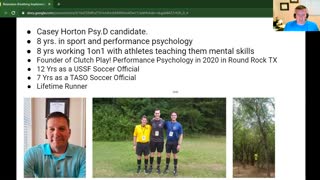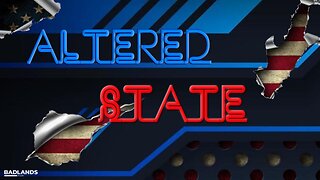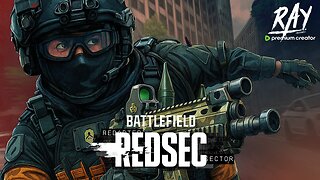Premium Only Content

Methods for restoring central fixation Relaxation moves
Methods for restoring central fixation
Relaxation moves
This method can be called an indirect recovery method of central fixation, which is works against the root cause of the violation of central fixation - overloading. All methods of removing the mental and physical stress will come here. But in this case, all kinds of movement and swaying that lead to microvibration of the retina nerves with a speed already known to us 70-120 times per second. Indirect ways of activating mobility include wearing blindfolds on one eye, "pirate glasses", using perforated glasses, "Relax" and "writing with a nose" (this great reception will be described later).
Ball games
In the playful way of restoring center of fixation, it is best all kinds of ball games have shown themselves. You can play tennis, volleyball, badminton, football - more often the ball moves, the more mobile our gaze. The main thing is that these games are not caused tension and were not accompanied by the stress of losses, as it happens in big sports. Billiards, of course, occupies a special place among these games. You know, that our ancestors played this game back in the 18th century? Back in 1804 Professor of the Department of Anatomy and Physiology of the Moscow Medical Surgical Academy, Doctor of Medicine and Chemistry Fedor Giltebrandt spread to wide society progressive for that era ways to preserve eye health, gave recommendations for strengthening vision and the whole body. The professor wrote in his book "On the preservation of vision": "Of all the games, in which people usually spend long winter evenings, for engaged in the hard work of billiards all day long as excellent remedy for tired eyes of large deserves approval. " It is characteristic that at that time also the concept of central fixation was unknown and vision problems 216 years ago were, I think, not so catastrophically much, as it is now.
Fyodor Giltebrandt as Professor of the Department of Anatomy and Physiology knew perfectly well the structure of the eyes and could easily imagine what was happening with them, when all attention is focused on the tip of the cue, and then rushes after the balls rolling in different directions. Equally wonderful effect for relieving stress from tired eye gives juggling. He doesn't need to study at a circus school, just pick up a small round object, be it a ball, an apple, orange, and start tossing it and catching it, throwing it from hand to hand. In this case, you only need to follow the movement of the object. In addition to excellent coordination, you will acquire a sharp quick glance! If you stand with the ball in your hands in front of the setting sun, and then toss and catch the ball while performing rhythmic turns body, you can combine three relaxation techniques in one simple exercise: restoration of central fixation, solarization and big turns. If the light seems too bright at first, start tossing the ball at sunset. After that, it is recommended to sit down and cover your eyes with your palms. So this way you will also perform palming for the eyes.
Dominoes for the eyes
Dominoes are among the accessible and very useful games for eyesight. Domino bones are ideal eye helpers thanks to the presence of small dots on a contrasting background. The easiest way to play: quickly glance at one or several dominoes and, closing your eyes, remember how many there were points. It is more interesting to play with someone two or three: who is faster and more precisely, he will name the sum of points - that is the winner. If you have no one to play with, you can lay out all the tiles in a flat box, fix them on it in several rows and, placing the structure in front of you at a distance convenient for the eyes, with a maximum quickly name the number of points in the upper halves of all tiles first row. Then you can do the same with the bottom row, then with some of the side rows, etc. This exercise helps to break the habit of gazing and encourages the eyes and mind to go into a state of rapid movement attention. In addition, such a seemingly simple activity actively stimulates mind, and at the same time perfectly trains memory. After all, you need not only instantly move your eyes through the points at the moment of memorization, but also restore the seen picture in memory in order to calculate the total number, holding in the head the location of the points on the knuckles. Eventually external and internal scanning of domino points is performed, at the same time, neural connections between the right and left are activated hemispheres of the brain during the addition of points in the mind.
Working with lines
Working with lines is the most direct way to recover central fixation. It is, however, also the most tedious, so doing it is better to divide this exercise into several stages.
FIRST STEP
Look at a line in a book, focus on one the word in the center of the line, close your eyes and imagine seeing this the word is clearer and brighter than the rest of the words in the line. Open your eyes. Look at that word again. Then close your eyes, bright again and present the selected word clearly. Keep working with line for at least 1 minute, ensuring that in reality the chosen word was seen clearer than the others. To achieve the desired result, I recommend submitting in front of you is a white sheet or board on which you want to draw highlighted word with an imaginary brush continuing the tip of your nose.
Second step
Having achieved gradual selection of the word, go to the selection one phrase in the center of the selected word and do the same with it most until you succeed. Keep in mind: this may require a lot of time.
Third step
Highlight one letter in the center of the word and represent it more distinct in comparison with others as long as you won't see it more clearly.
Step four
In the same way as described above, strive to see the top of the letter is clearer than the bottom. Then, on the contrary, visualize the bottom more clearly. It was the last stage that Dr. Bates suggested for recovery of central fixation in his book, while omitting all the previous ones. It is difficult to imagine how you can see the top of the letter better than the bottom. Only after reading a similar step-by-step version from another author, I realized how to achieve the desired effect. And she called this path straight, because, concentrating on the center of the line, phrase and letter, we gradually disable our false macula and restore the ability to be fixed precisely on the centers (macula) of our eyeballs. This technique is good because it can be performed anywhere and in any time, as long as there is a book or other printed text with suitable font size.
Also, this technique is good because it can be done for the rest of your life, just by reducing the size font and changing the distance from the eyes to the text. Farsighted need a font to reduce, and myopic - to move the text away from themselves. Work very well both large and small print on the same page, as shown in Reduction Font table.
For farsighted readers, I advise you to highlight the top or bottom areas of large letters first, and then smaller ones. Nearsighted people it is useful to work with the text, placing it in the zone of blurry vision and looking at first only at what pattern they form on a white background the top or bottom of the largest letters. Besides that the studied areas of the letters will become clearer, you will it is much easier to read the lines written in the table.
Thanks for watching this video until the very end. Now you have a great set of exercises for training central fixation, which is Relaxation moves, Ball games, Dominoes and Lines, phrases, words in text. Subscribe to my channel and hopefully will see you again
-
 9:04
9:04
ClutchPlay
4 years agoRelaxation Breathing Implementation
19 -
 LIVE
LIVE
Alex Zedra
3 hours agoLIVE! Battlefield RecSec
262 watching -
 1:26:50
1:26:50
The Quartering
4 hours agoErika Kirk Threatened, SNAP Riots Near, & New AstroTurfed Woke Lib Influencer
30.6K17 -
 29:24
29:24
Glenn Greenwald
6 hours agoSen. Rand Paul on Venezuela Regime Change, the New War on Drugs, MAGA Rifts, and Attacks from Trump | SYSTEM UPDATE #539
100K103 -
 1:45:39
1:45:39
Badlands Media
17 hours agoAltered State S4 Ep. 3
40.8K24 -

This is the Ray Gaming
2 hours ago $0.01 earnedRedacted Sector Day 2 | Rumble Premium Creator
9.79K4 -
 LIVE
LIVE
SOLTEKGG
3 hours ago🔴LIVE - 30 + Kill Battle Royale - BF6 Giveaway
45 watching -
![[9 WINS] Battlefield 6 BR GRIND](https://1a-1791.com/video/fww1/3b/s8/1/6/c/1/u/6c1uz.0kob-small-9-WINS-Battlefield-6-BR-GRI.jpg) LIVE
LIVE
StevieTLIVE
4 hours ago[9 WINS] Battlefield 6 BR GRIND
17 watching -
 9:38:45
9:38:45
Dr Disrespect
13 hours ago🔴LIVE - DR DISRESPECT - BATTLEFIELD 6 - REDSEC DUOS - WIN WIN WIN
116K15 -
 23:38
23:38
ArynneWexler
12 hours agoAOC vs Riley Gaines The Twitter War | NN7
15.9K7